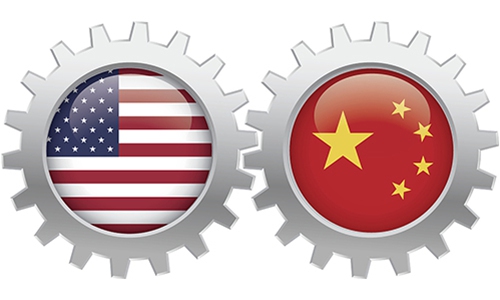HOME >> OPINION
China can gain final advantage by preventing a new Cold War
Source:Global Times Published: 2019/12/6 14:48:40

Photo: VCG
Chinese Ambassador to the US Cui Tiankai said on Wednesday that "we must be alert that some destructive forces are taking advantage of the ongoing trade frictions. Extreme rhetoric, such as decoupling, a new Cold War, and clash of civilizations, are having their way here." Cui also said that some American people are "pointing fingers at the governing party and national system of China." "They are trying to rebuild the Berlin Wall between China and the US in the economic, technological and ideological fields," he said.
Indeed, China-US relations are at an unprecedented crossroads, and some American people have shown their strong intentions to ruin the constructive relations. But they should know that this will be difficult. It is a challenging task for China to influence future China-US interactions and stop such people from dragging the two countries into a new Cold War.
First, we should be aware of the relevant fields and intensity of the current China-US disputes. By far, the strongest US attacks have been in economic and ideological fields. The US launched the trade war against China and has shown its clear tendency to decouple in terms of high technology. The US has been especially aggressive when it comes to ideology and its attacks have been rough.
Militarily, the US has sped up its development and deployment of high-tech equipment, strengthened the construction of its base networks around China and increased the frequency of its so-called freedom of navigation in China's adjacent seas.
These moves have greatly altered China-US relations and have allowed a tense atmosphere to pervade the two countries. But these acts are more likely to build momentum for Washington itself. The US elite have reached a broad consensus to treat China harshly, but they have not made their purposes clear. The US has not decided whether to use the trade war to gain increased profits or take China down strategically.
The US-Soviet Union Cold War did not start overnight. Instead, both sides continued to raise the stakes in their fierce interactions and eventually the situation became irreversible. The situation between China and the US is fundamentally different to that of the Cold War, which may stop China-US relations from entering a downward spiral.
Generally, the US is not calm in its approach to the tensions. Some US political elite's acts are merely bravado. But we should firmly believe that these elite cannot lead China-US relations into Cold War antagonism. As long as China adopts a proper strategy of maneuvering around US provocation, it can maintain its core interests and defeat any attempts to launch a new Cold War.
This will require China to show strategic focus, remain confident in the face of US provocation and accurately assess to what extent the provocation could harm it. We need a firm response to US provocation, and we should also avoid hyping the disputes to overall significance.
China should deepen its reform and opening-up, including opening up to the US, and it should coordinate the process with China's countermeasures against US provocation. China's opening-up strategy will disintegrate the US radical policies in the long run, and we should wait patiently for this to happen.
We do not need to compete with the US tough attitude. China should be proud of surpassing the US in tenacity, strategy and maneuverability. As long as China stops a new Cold War from occurring and maintains its strong momentum in national development, it will gain the final advantage.
Future China-US relations should not be led by the radical US elite. China needs to behave impeccably so that any Thucydides Trap is removed. That will be China's accomplishment as well as a joint achievement of China and the US. A rising China will thus contribute to the 21st century of the entire human race.
Posted in: EDITORIAL